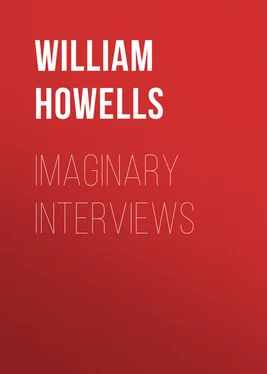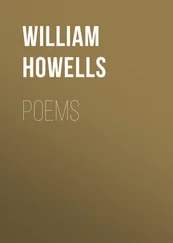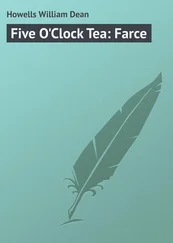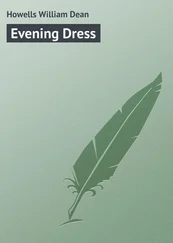William Howells - Imaginary Interviews
Здесь есть возможность читать онлайн «William Howells - Imaginary Interviews» — ознакомительный отрывок электронной книги совершенно бесплатно, а после прочтения отрывка купить полную версию. В некоторых случаях можно слушать аудио, скачать через торрент в формате fb2 и присутствует краткое содержание. Жанр: foreign_prose, на английском языке. Описание произведения, (предисловие) а так же отзывы посетителей доступны на портале библиотеки ЛибКат.
- Название:Imaginary Interviews
- Автор:
- Жанр:
- Год:неизвестен
- ISBN:нет данных
- Рейтинг книги:3 / 5. Голосов: 1
-
Избранное:Добавить в избранное
- Отзывы:
-
Ваша оценка:
- 60
- 1
- 2
- 3
- 4
- 5
Imaginary Interviews: краткое содержание, описание и аннотация
Предлагаем к чтению аннотацию, описание, краткое содержание или предисловие (зависит от того, что написал сам автор книги «Imaginary Interviews»). Если вы не нашли необходимую информацию о книге — напишите в комментариях, мы постараемся отыскать её.
Imaginary Interviews — читать онлайн ознакомительный отрывок
Ниже представлен текст книги, разбитый по страницам. Система сохранения места последней прочитанной страницы, позволяет с удобством читать онлайн бесплатно книгу «Imaginary Interviews», без необходимости каждый раз заново искать на чём Вы остановились. Поставьте закладку, и сможете в любой момент перейти на страницу, на которой закончили чтение.
Интервал:
Закладка:
"You mean that you had meant to lump the imports and escape the tax altogether?" we asked.
"Something like that."
"And the officer's idea of caressing irony was to let you think you could escape equally well by being perfectly candid?"
"Something like that."
"And what was the other occasion?"
"Oh, it was when I had a letter to the customs officer, and he said it would be all right, and then furnished me an inspector who opened every piece of my baggage just as if I had been one of the wicked."
We could not help laughing, and our friend grinned appreciatively. "And what was that supreme instance of caressing irony which you experienced in Boston?" we pursued.
"Ah, there is something I don't think you can question. But I didn't experience it; I merely observed it. We were coming down the stairs to take our hack at the foot of the pier, and an elderly lady who was coming down with us found the footing a little insecure. The man in charge bade her be careful, and then she turned upon him in severe reproof, and scolded him well. She told him that he ought to have those stairs looked after, for otherwise somebody would be killed one of these days. 'Well, ma'am,' he said, 'I shouldn't like that. I was in a railroad accident once. But I tell you what you do. The next time you come over here, you just telephone me, and I'll have these steps fixed. Or, I'll tell you: you just write me a letter and let me know exactly how you want 'em fixed, and I'll see to it myself.'"
"That was charming," we had to own, "and it was of an irony truly caressing, as you say. Do you think it was exactly respectful?"
"It was affectionate, and I think the lady liked it as much as any of us, or as the humorist himself."
"Yes, it was just so her own son might have joked her," we assented. "But tell us, Crœsus," we continued, in the form of Socratic dialogue, "did you find at Boston that multiple unmannerliness which you say is apparent from the vast increase of adoptive citizens? We have been in the habit of going to Boston when we wished to refresh our impression that we had a native country; when we wished to find ourselves in the midst of the good old American faces, which were sometimes rather arraigning in their expression, but not too severe for the welfare of a person imaginably demoralized by a New York sojourn."
Our friend allowed himself time for reflection. "I don't think you could do that now with any great hope of success. I should say that the predominant face in Boston now was some type of Irish face. You know that the civic affairs of Boston are now in the hands of the Irish. And with reason, if the Irish are in the majority."
"In New York it has long been the same without the reason," we dreamily suggested.
"In Boston," our friend went on, without regarding us, "the Catholics outvote the Protestants, and not because they vote oftener, but because there are more of them."
"And the heavens do not fall?"
"It is not a question of that; it is a question of whether the Irish are as amiable and civil as the Americans, now they are on top."
"We always supposed they were one of the most amiable and civil of the human races. Surely you found them so?"
"I did at Queenstown, but at Boston I had not the courage to test the fact. I would not have liked to try a joke with one of them as I would at Queenstown, or as I would at Boston with an American. Their faces did not arraign me, but they forbade me. It was very curious, and I may have misread them."
"Oh, probably not," we lightly mocked. "They were taking it out of you for ages of English oppression; they were making you stand for the Black Cromwell."
"Oh, very likely," our friend said, in acceptance of our irony, because he liked irony so much. "But, all the same, I thought it a pity, as I think it a pity when I meet a surly Italian here, who at home would be so sweet and gentle. It is somehow our own fault. We have spoiled them by our rudeness; they think it is American to be as rude as the Americans. They mistake our incivility for our liberty."
"There is something in what you say," we agreed, "if you will allow us to be serious. They are here in our large, free air, without the parasites that kept them in bounds in their own original habitat. We must invent some sort of culture which shall be constructive and not destructive, and will supply the eventual good without the provisional evil."
"Then we must go a great way back, and begin with our grandfathers, with the ancestors who freed us from Great Britain, but did not free themselves from the illusion that equality resides in incivility and honesty in bluntness. That was something they transmitted to us intact, so that we are now not only the best-hearted but the worst-mannered of mankind. If our habitual carriage were not rubber-tired by irony, we should be an intolerable offence, if not to the rest of the world, at least to ourselves. By-the-way, since I came back I have been reading a curious old book by James Fenimore Cooper, which I understand made a great stir in its day. Do you know it? — Home as Found? "
"We know it as one may know a book which one has not read. It pretty nearly made an end of James Fenimore Cooper, we believe. His fellow-countrymen fell on him, tooth and nail. We didn't take so kindly to criticism in those days as we do now, when it merely tickles the fat on our ribs, and we respond with the ironic laughter you profess to like so much. What is the drift of the book besides the general censure?"
"Oh, it is the plain, dull tale of an American family returning home after a long sojourn in Europe so high-bred that you want to kill them, and so superior to their home-keeping countrymen that, vulgarity for vulgarity, you much prefer the vulgarity of the Americans who have not been away. The author's unconsciousness of the vulgarity of his exemplary people is not the only amusing thing in the book. They arrive for a short stay in New York before they go to their country-seat somewhere up the State, and the sketches of New York society as it was in the third or fourth decade of the nineteenth century are certainly delightful: society was then so exactly like what it is now in spirit. Of course, it was very provincial, but society is always and everywhere provincial. One thing about it then was different from what it is now: I mean the attitude of the stay-at-homes toward the been-abroads. They revered them and deferred to them, and they called them Hajii, or travellers, in a cant which must have been very common, since George William Curtis used the same Oriental term for his Howadji in Syria and his Nile Notes of a Howadji ."
"We must read it," we said, with the readiness of one who never intends to read the book referred to. "What you say of it is certainly very suggestive. But how do you account for the decay of the reverence and deference in which the Hajii were once held?"
"Well, they may have overworked their superiority."
"Or?" we prompted.
"The stay-at-homes may have got onto the been-abroads in a point where we all fail, unless we have guarded ourselves very scrupulously."
"And that is?"
"There is something very vulgarizing for Americans in the European atmosphere, so that we are apt to come back worse-mannered than we went away, and vulgarer than the untravelled, in so far as it is impoliter to criticise than to be criticised."
"And is that why your tone has been one of universal praise for your countrymen in the present interview?"
Our friend reached for his hat, smoothed a ruffled edge of the crown, and blew a speck of dust from it. "One reasons to a conclusion," he said, "not from it."
IX
NEW YORK TO THE HOME-COMER'S EYE
Our friend came in with challenge in his eye, and though a month had passed, we knew, as well as if it were only a day, that he had come to require of us the meaning in that saying of ours that New York derived her inspiration from the future, or would derive it, if she ever got it.
Читать дальшеИнтервал:
Закладка:
Похожие книги на «Imaginary Interviews»
Представляем Вашему вниманию похожие книги на «Imaginary Interviews» списком для выбора. Мы отобрали схожую по названию и смыслу литературу в надежде предоставить читателям больше вариантов отыскать новые, интересные, ещё непрочитанные произведения.
Обсуждение, отзывы о книге «Imaginary Interviews» и просто собственные мнения читателей. Оставьте ваши комментарии, напишите, что Вы думаете о произведении, его смысле или главных героях. Укажите что конкретно понравилось, а что нет, и почему Вы так считаете.












